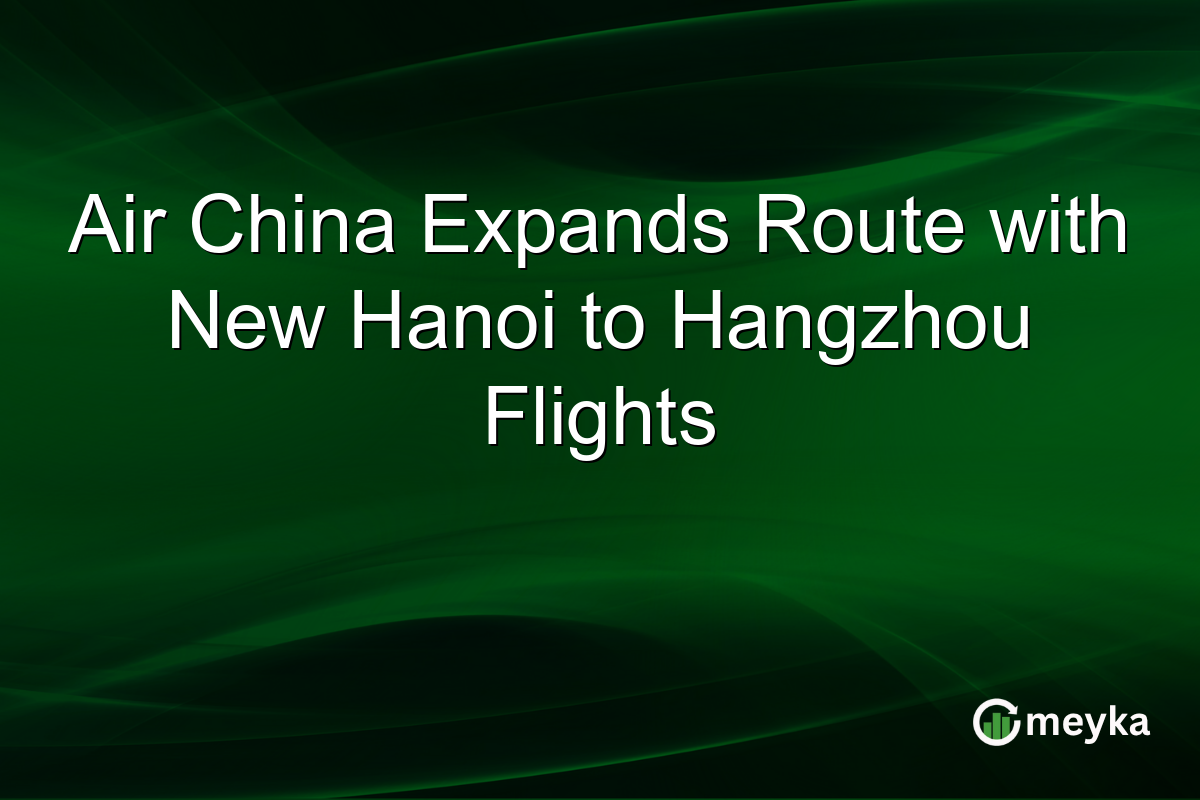Air China Expands Route with New Hanoi to Hangzhou Flights
Air China has expanded its network with a new route from Hanoi to Hangzhou, marking a significant step in the Hangzhou air travel expansion. This new service aims to enhance connectivity between Vietnam and China, reflecting the growing demand for international travel in Asia. Hangzhou’s rise as a major economic and tourist hub makes this route especially strategic, potentially boosting regional commerce and tourism.
Continue Reading on Meyka
This article is available in full on our main platform. Get access to complete analysis, stock insights, and more.
Read Full Article →





